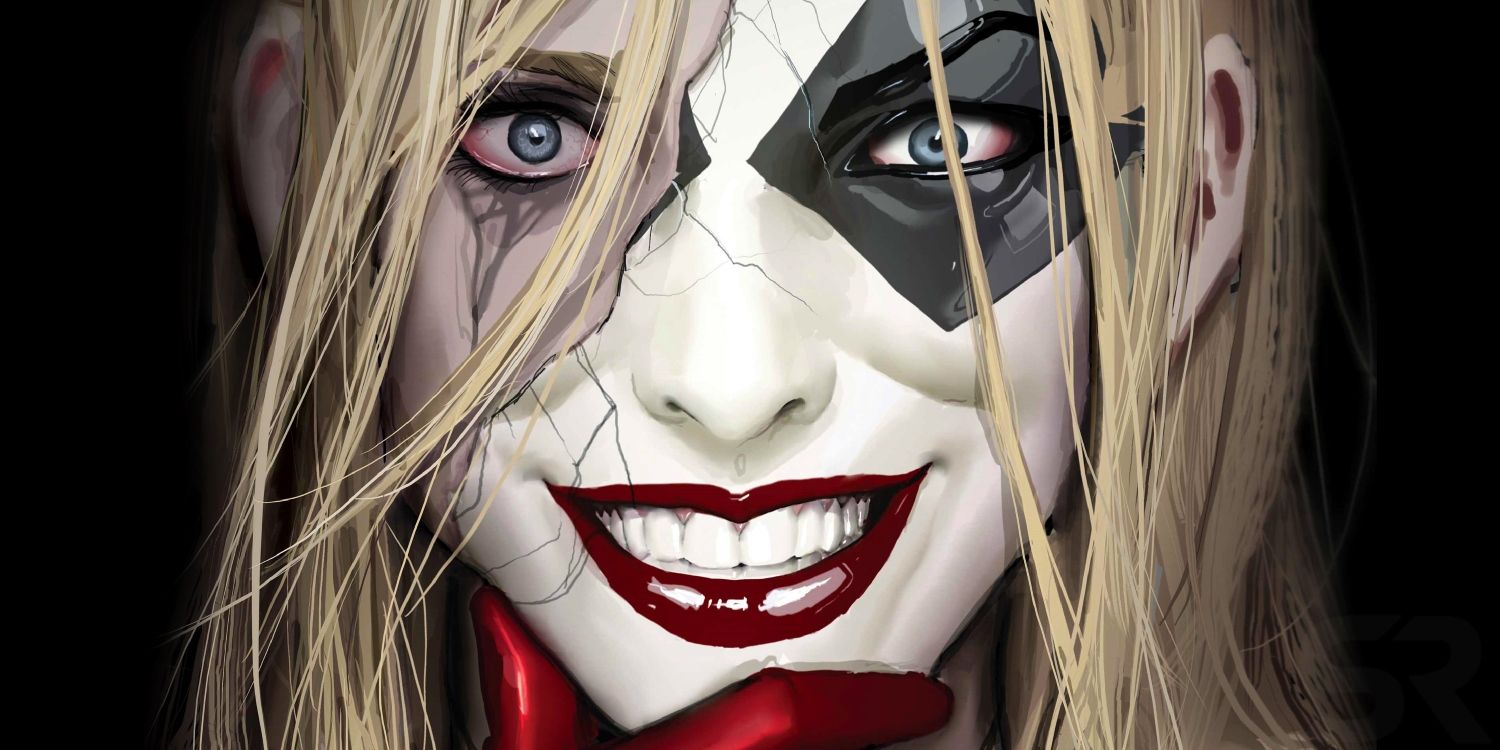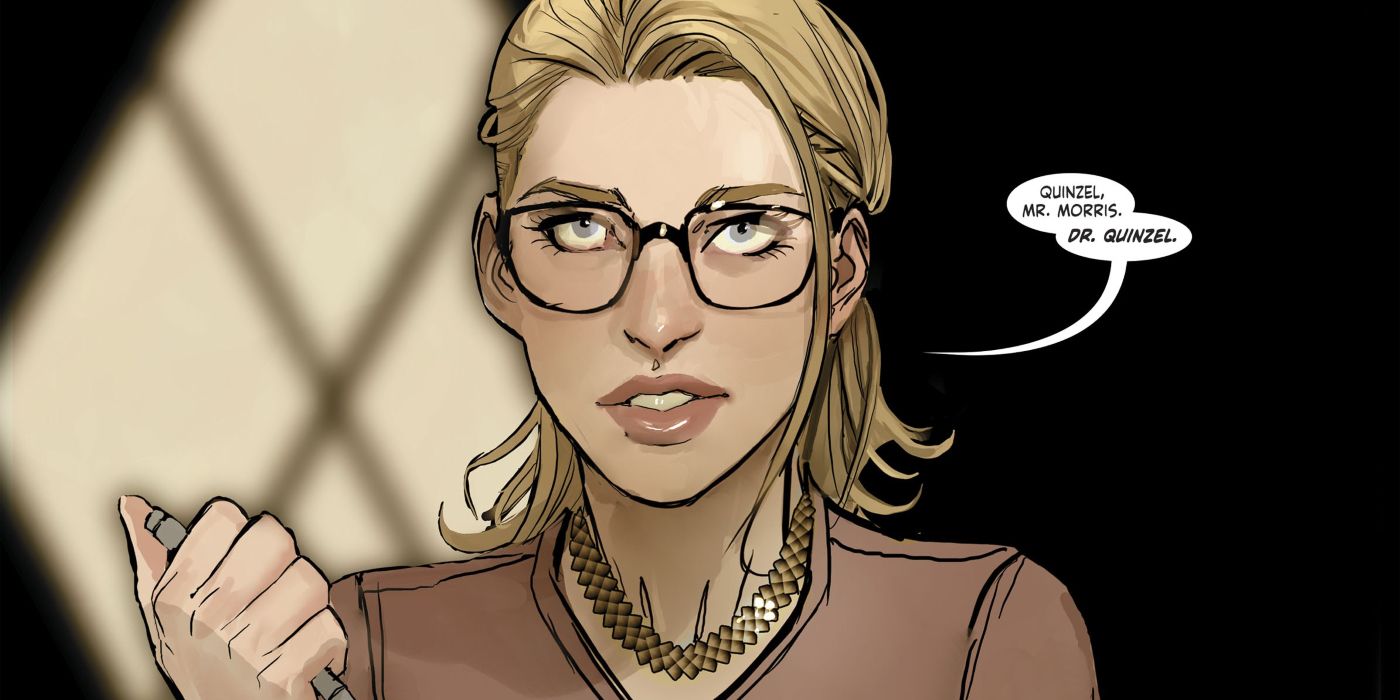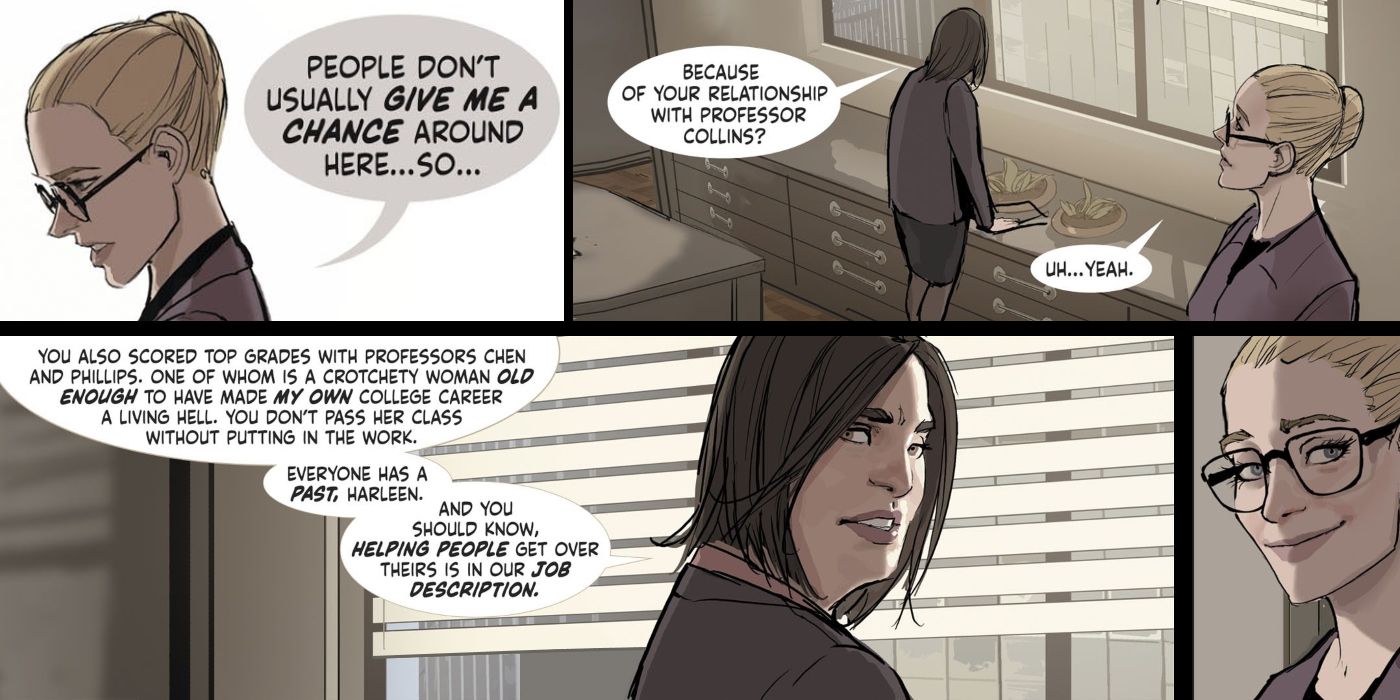
Warning: SPOILERS for Harleen #1
The first book of DC's new Black Label series has arrived, with Harleen #1 beginning a new backstory for fan-favorite femme fatale Harley Quinn. But this fresh take on the psychiatrist's journey to becoming Batman's most iconic enemy-sidekick has already made significant changes to Harley Quinn's origin, giving a far more humanizing take on the comic icon.
Harley Quinn's original origin story was first told in Batman: Mad Love in 1993. In that comic, Harleen Quinzel was a star gymnast who used her athleticism to gain a scholarship to Gotham University. Her studying habits, however, were not a priority--showing Harley slept with her professors to gain higher marks (one panel showing her walking in with a D- and leaving with an A+ as a lovestruck old man watches her go). This original Harleen Quinzel had slim ambitions for changing lives, hoping to become a "pop psychologist with her own line of self-help books." Oh, how times have changed.
Fortunately, Stjepan Šejić's Harleen changes this dynamic entirely. Now it is clearly demonstrated that Harleen is anything but vapid. At university, Harleen was a top student... on her own merit. She pursued the career because she "like[d] listening to her friends' problems." Her relationship status was that of a late bloomer, single well into college--until it is revealed that she's attracted to "older guys."

It's a callback to her first origins in Mad Love, since she does sleep with her professor in the new series as well. But she is no longer motivated to do it for the sake of saving her GPA. When she gets caught having the encounter, her fellow students make the assumption that she's only succeeding because of her relationship, but this is both untrue and embarrassing for Harleen.
As for her goals as a psychiatrist, the new Harleen has no intentions of self-help books or pop psychology fame. One of the first scenes of the story is actually her presenting her research to a group of investors, intending to pursue study of the 'fight or flight' response. Specifically, it being overextended, leading to a deterioration of empathy in extreme psychiatric cases, like soldiers at war or experiencing harsh conditions for elongated periods of time. Funny enough, Harleen's biggest obstacle in gaining opportunity to further research this is her lack of showmanship in presenting her idea (a harsh contrast to the star gymnast brimming with personality).

Even Harleen's time as a psychiatrist at Arkham Asylum is altered, now present after being funded by Lucius Fox to conduct her presented research, working with far more patients than the Joker. Readers can enjoy interactions with some of Gotham's most notorious supervillains, like Poison Ivy, Killer Croc, the Riddler, and more. In fact, Harleen avoids the Joker because she's so intimidated by him, which departs from her nearly instant, willing fascination with his romantic attention at the beginning of her first origin story. Yet her nightmares are filled with visions of the oddly sexy version of the Joker, forcing her to eventually face him directly.
Harleen offers a modernization of Harley Quinn's origin that adds depth to her choices, how she got to Arkham, and why she even approaches the Joker to begin with. While her original story is coy, silly, and dated at many points, this serious origin is introducing readers to a shy, socially awkward psychiatrist--who actually wants to help gain others' empathy back after they have been emotionally or mentally scarred. It's surely a new version of Harley, but it's more than welcome.
from ScreenRant - Feed https://ift.tt/2m0qlTP


0 Comments